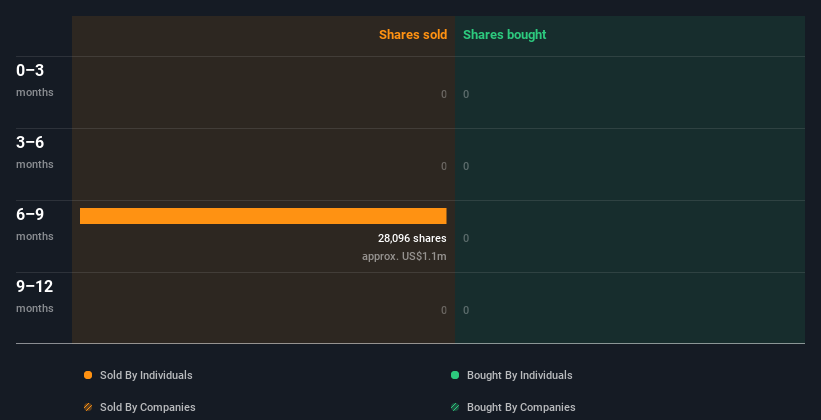Citigroup Sees Insider Stock Selling
Insiders were net sellers of Citigroup Inc.'s (NYSE:C ) stock during the past year. That is, insiders sold more stock than they bought.
While insider transactions are not the most important thing when it comes to long-term investing, we do think it is perfectly logical to keep tabs on what insiders are doing.
Check out our latest analysis for Citigroup
Citigroup Insider Transactions Over The Last Year
Over the last year, we can see that the biggest insider sale was by the Head of Markets, Andrew Morton, for US$1.1m worth of shares, at about US$40.66 per share. So it's clear an insider wanted to take some cash off the table, even below the current price of US$63.02. We generally consider it a negative if insiders have been selling, especially if they did so below the current price, because it implies that they considered a lower price to be reasonable. While insider selling is not a positive sign, we can't be sure if it does mean insiders think the shares are fully valued, so it's only a weak sign. It is worth noting that this sale was only 6.4% of Andrew Morton's holding. The only individual insider seller over the last year was Andrew Morton.
You can see a visual depiction of insider transactions (by companies and individuals) over the last 12 months, below. If you click on the chart, you can see all the individual transactions, including the share price, individual, and the date!
For those who like to find hidden gems this free list of small cap companies with recent insider purchasing, could be just the ticket.
Does Citigroup Boast High Insider Ownership?
I like to look at how many shares insiders own in a company, to help inform my view of how aligned they are with insiders. A high insider ownership often makes company leadership more mindful of shareholder interests. Citigroup insiders own 0.2% of the company, currently worth about US$251m based on the recent share price. This kind of significant ownership by insiders does generally increase the chance that the company is run in the interest of all shareholders.
So What Do The Citigroup Insider Transactions Indicate?
There haven't been any insider transactions in the last three months -- that doesn't mean much. It's heartening that insiders own plenty of stock, but we'd like to see more insider buying, since the last year of Citigroup insider transactions don't fill us with confidence. So while it's helpful to know what insiders are doing in terms of buying or selling, it's also helpful to know the risks that a particular company is facing. Every company has risks, and we've spotted 1 warning sign for Citigroup you should know about.
Of course Citigroup may not be the best stock to buy. So you may wish to see this free collection of high quality companies.
For the purposes of this article, insiders are those individuals who report their transactions to the relevant regulatory body. We currently account for open market transactions and private dispositions of direct interests only, but not derivative transactions or indirect interests.
Have feedback on this article? Concerned about the content? Get in touch with us directly. Alternatively, email editorial-team (at) simplywallst.com.
This article by Simply Wall St is general in nature. We provide commentary based on historical data and analyst forecasts only using an unbiased methodology and our articles are not intended to be financial advice. It does not constitute a recommendation to buy or sell any stock, and does not take account of your objectives, or your financial situation. We aim to bring you long-term focused analysis driven by fundamental data. Note that our analysis may not factor in the latest price-sensitive company announcements or qualitative material. Simply Wall St has no position in any stocks mentioned.

 Yahoo Finance
Yahoo Finance 
